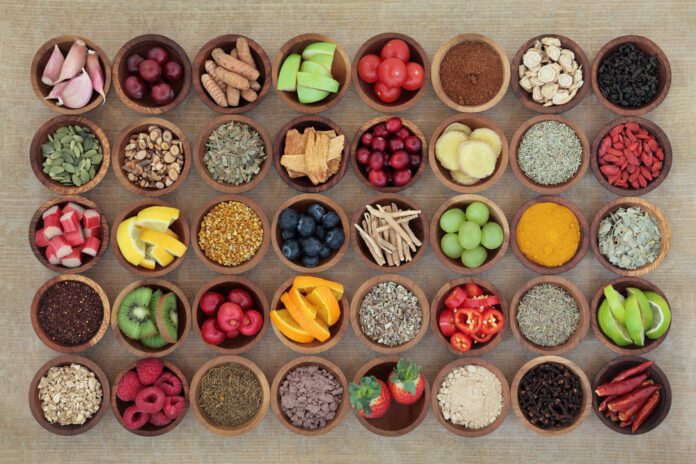Your immune system is pivotal for a normal working body. In these times of the coronavirus pandemic, knowing how to boost your immunity is more important than ever. In this article, I am going to tell you about which vitamins and minerals to take, which based on my clinical practice, help to boost immunity.
Vitamins And Minerals To Boost Immunity
Vitamins and minerals are micronutrients which means they are not required in large quantities. However, these organic compounds are required in small amounts for the sustenance of life. Their role in the human body had been controversial in the past but new research encourages them for optimal body functioning. This latest review also supports the role of vitamins and minerals in boosting immunity.
What Is Vitamin A
Vitamin A is a crucial component for the growth and development and maintenance of normal vision. The micronutrient also plays an important role in the regulation of the immune system. The importance of vitamin A was determined by studying what the effects of its deficiency are.
In a study on rats, it was found that immune response (B cells) is impaired due to a vitamin A deficiency. Bone marrow is a soft, spongy structure present in the bones. It is responsible for the maturation of different blood cells. The production of white blood cells relies on bone marrows. Vitamin A also regulates the performance of bone marrow and is responsible for bone marrow homeostasis.
Food Sources Of Vitamin A
You can get decent amounts of vitamin A from different natural foods such as:
- Vegetables (broccoli, sweet potatoes, pumpkins, and carrots)
- Dairy products
- Seafood (such as tuna fish)
Vitamin B Complex
Vitamin B complex consists of different vitamins including (B1, B2, B3, B6, B12, etc.) Vitamin B6 is effective in improving your immune system. It is recommended that vitamin B complex be used as a supplement. A study suggests that vitamin B deficiency in animals leads to impaired development of the immune system.
Food Sources Of Vitamin B
- Eggs
- Fortified milk
- Green leafy vegetables
What Is Vitamin C
The development and functioning of lymphocytes (immune cells) are governed by vitamin c in the body. As per a study, vitamin C is required for the enhancement of T lymphocyte replication. The same study promotes the use of vitamin C in supplement form for an optimal immune system. known as ascorbic acid, and this micronutrient is vital in the regulation of the immune system, another study suggests.
Food Sources Of Vitamin C
- Citrus fruits (oranges, lemons, lime)
- Berries (strawberries, blueberries)
- Green vegetables (broccoli, brussel sprouts)
What Is Vitamin D
Vitamin D is a unique vitamin that is famous for causing optimal bone and teeth growth. It is considered a prohormone. A prohormone is a substance that acts as a precursor for hormones. This vitamin plays a vital role in the regulation of immunity. A randomized trial specifies the role it plays in boosting immunity. Vitamin D is responsible for increasing the levels of cathelicidin protein which is an antimicrobial peptide responsible for maintaining immunity. A review concludes that vitamin D supplementation improves the level of cathelicidin (an antimicrobial protein found in immune cells). Therefore, taking vitamin D supplements not only improves your muscles, bones, and teeth but also kick starts your immune system too.
Food Sources Of Vitamin D
- Eggs (yolks)
- Red meat
- Green leafy vegetables
- Fish oil (from salmon, herring, and mackerel)
- Liver meat
What Is Vitamin E
This is a fat-soluble vitamin that boosts immunity. A study suggests that people who take vitamin E supplements have increased levels of macrophages, B and T lymphocytes, and natural killer cells.
Some researchers consider vitamin E as the most effective nutrient in boosting immunity. Its deficiency shows problems in immunity and likewise, vitamin E supplementation displays positive changes. Another study proves that vitamin E enhances the movement and action of phagocytes (immune cells that eat and dissolve germs).
Food Sources Of Vitamin E
- Nuts (peanuts, etc.)
- Sunflower seeds
- Almonds
- Wheat germ oil
- Seafood (crayford, octopus and lobster, etc.)
What Is Folic Acid
Folic acid is a part of the vitamin B complex. The micronutrient is beneficial in boosting the defense mechanisms of your body. Its deficiency in pregnant women is linked to the development of birth defects in the child. The water-soluble vitamin should be taken as a supplement to keep your immune cells active and working.
Food Sources Of Folic Acid
- Green leafy veggies (such as broccoli)
- Legumes
- Fortified grains
- Fruits
What Is Selenium
The mineral Selenium has a powerful impact on the immune system. In my clinical experience, I have seen time and time again that people taking the mineral either in the form of supplements or from natural products have a stronger immune system and get sick less often.
Food Sources Of Selenium
- Seafood
- Poultry
- Cheese (cottage)
What Is Zinc
This metal is an essential component of the immune cell production system. People deficient in the very mineral have compromised immune responses. A study shows that zinc deficiency causes weakened innate host defenses. Another review suggests that zinc supplementation powers your immune system against both acute and chronic infections. Therefore, zinc therapy is an effective approach. In the current scenario of coronavirus zinc is believed to play an essential role in enhancing immunity in the elderly. Zinc can also be taken in the form of supplements.
Food Sources Of Zinc
- Whole grains
- Cereals fortified with zinc
- Red meat
- Nuts








